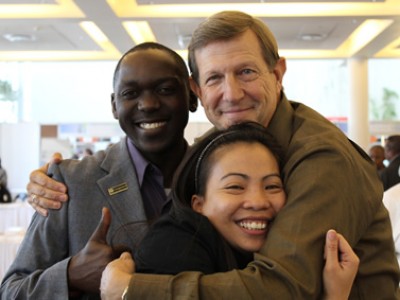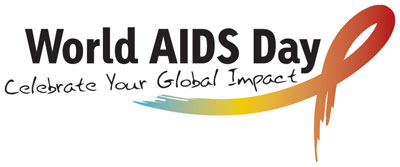Always Picked Last (Extreme Poverty Style)
Imagine a world where you grow up with a mommy and a daddy and live in a nice warm house with your family.
You have your own bed, and sleep each night with a full belly. You go to school, and in the afternoon you go to sports practice on a green grassy lawn that is safely guarded from speeding cars and other dangers.
Imagine a world where your toys are bought from Wal-Mart, and you get a new Christmas, Easter and birthday outfit every year.
That’s not very hard to imagine … is it? Most of us grew up in that setting — or one very similar.
The situation that is hard to truly grasp is living in the circumstances the children in our sponsorship program live in.
We’ve seen the pictures; some of us have had the chance to see poverty firsthand. The reality the children in our sponsorship program live in is mostly the opposite of ours.
While some children are blessed with both parents still living, many live with other family members or older siblings. They eat one meal a day *maybe*, and play with toys that they find in the trash dumps outside their wood-walled, tin-roofed, one-room shanty.
 So imagine how it brightens a child’s day when he or she goes to the child development center and receives a letter from you — the sponsor.
So imagine how it brightens a child’s day when he or she goes to the child development center and receives a letter from you — the sponsor.
Now imagine a child who doesn’t have a sponsor. When all the children receive letters at the center, one never comes for this child.
This child, Carlos from Colombia, was registered into the sponsorship program in April, 2008, and has never — I repeat NEVER — had a sponsor.
What questions do you think run through his head when he attends the center during letter-writing and receiving time? What would run through your mind?
“Wait!” You say. “Doesn’t the sponsorship program still provide Carlos everything he needs? He is registered, after all.”
Let me see if I can explain. (more…)
Continue Reading ›You Give Them Something to Eat
It seems we, as humans, are always passing the buck, or bucking the responsibility.
Jesus replied, “They do not need to go away. You give them something to eat.”
“We have here only five loaves of bread and two fish,” they answered. — Matthew 14:16-17, NIV
Jesus saw the multitude and that the multitude was hungry. His attitude was not to leave their well-being up to someone else. He took responsibility and He wanted His disciples to assume this responsibility as well.
His disciples, however, could not see past their own limitations.
“We don’t have enough food for all these people” and “we don’t have the money to buy food for all these people” were the excuses Jesus heard.
The disciples wanted to send the hungry people away to fend for themselves, passing the responsibility of feeding the hungry back onto the hungry themselves.
Jesus, however, was not deterred by the physical limitations of the situation. He had bread the disciples didn’t understand. He understood the limitless nature of God’s provision, a provision not encased in the physical reality around us, but in the supernatural reality of God.
Is our response not much the same as the disciples when we are confronted with the need of the hungry? (more…)
Continue Reading ›Preventable Causes of Death
Diarrhea. Unclean water. Measles. Pneumonia. Tuberculosis. Malaria. Every day 25,000 children younger than 5 die from mostly preventable causes. Why?

Because they live in poor countries that aren’t a priority to developed nations. But they’re still a priority to God.
And they can be yours, too – compassion.com/youcan

Letter Writing Ideas From the Moody Bible Institute Scholars
Four Leadership Development Program graduates now attending Moody Bible Institute share some tips on what you should include in the letters you write to your sponsored children.
AIDS Crisis in Africa: What Compassion Ghana Is Doing About It
Compassion Ghana is intensifying its fight against the spread of HIV and AIDS with Compassion’s AIDS Initiative. Among the many activities aimed at achieving this objective is education.
Florence Sena Amponsah is a Partnership Facilitator for 12 Compassion-assisted child development centers. She has been with Compassion Ghana for one year now. She is involved with a pilot program to train youths to educate their peers about HIV and AIDS.
“When children get to a certain age, around the teenage years, they tend to relate more to their peers and their siblings who are closer to them in age than they would from their parents or teachers or adults in general.
“Parents and adults have the inclination to be uncommunicative on issues concerning sex, but children get to an age where they need answers to many things happening to their bodies. When they do not get the responses they require, they turn to their peers for information.
“Most times the information shared among peers is by and large wrong and detrimental.
“Considering these facts, we believe that when the capacity of children whom we call ‘Peer Educators’ is built up by equipping then with right knowledge and correct information, then these children can carry the message across to other children, their communities, their churches and even in their schools.
“What they are learning are most of the general things they need answers to at their developmental stage, which they are not able to openly talk about.
“The Peer Educators Training is in the pilot phase for 12 child development centers, presenting two children from each. So there are 24 children involved in the pilot.
“From what I have seen so far, I can confidently say that the program is going to make a great impact. The group of children here are highly intelligent, and judging from their participation, I can tell they are learning a lot as they find the topics to be relevant to them.
“We chose HIV and AIDS as the topic for the peer educators because HIV and AIDS is a disease which is threatening Africa. It has cut across many countries, and is a problem here in Ghana.
“We have orphans, we have people who have been infected with the disease, so we are building the capacity of these peer educators to carry the message.
“They are being taught how the disease is spread so that if they know, they will make informed decisions about themselves. At least they will know how to protect themselves.
“They are also being taught the need to care for other people who have the disease to help prevent discrimination, isolation and rejection.”
AIDS Crisis in Africa: Living HIV-Positive
My name is Azalea*. I live with my daughter. She is 10, in grade four and is second in her class. So, we are two people in the family. My husband passed away several years ago after a short disease. He was suffering from a liver problem.
We eat rice, millet pastry and beans. As we are only two, I cook once a day. After breakfast, I cook and we eat the meal at noon, and in the evening I reheat the leftovers and we eat.
We are living in an urban area. We have electricity and running water in the community, but only for those who can afford it. We also have a medical center in the neighborhood. Most people sell small items to feed their families.
I discovered my daughter was HIV-positive in 2005. She was suffering from severe chickenpox. The treating doctor suggested us to take an AIDS test. We agreed, and the child was declared HIV-positive.
I do not know how she got the disease, if it was during her birth or during the blood transfusion she got when she was very little.
My daughter does not yet know she is HIV-positive, but I will surely tell her. As I do not know how she will react, I am looking for the right moment to tell her.
I am also HIV-positive, but I do not know how and when I got infected. When the doctor discovered that my daughter was HIV-positive, he encouraged me to take the test and that was how I came to know.
I was very shocked when I found out. I was asking myself how I would live with the disease and how others would react.
Four years after being declared HIV-positive, I am still asking myself the same questions. (more…)
World AIDS Day: Celebrating Your Global Impact
Thanks to you, we at Compassion have been able to implement comprehensive and holistic services that allow us to proactively fight AIDS one child at a time.
Today, World AIDS Day, we honor you and the global impact you have on behalf of our Savior and the work He is doing in the lives of children affected by this disease.
You can also view the World AIDS Day video on YouTube.



